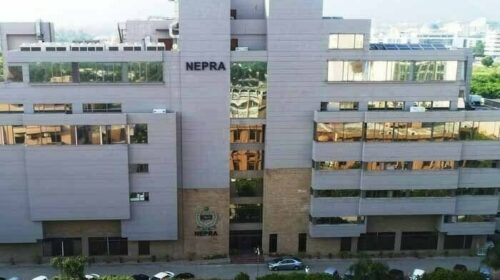Chairman National Electric Power Regulatory Authority (Nepra) Tauseef H Farooqi has assured the All Pakistan Textile Industry (APTMA) of reviewing wheeling charges against cheaper power generation facilities to be set up by the industry under Competitive Trading Bilateral Contract Market (CTBCM) scheme.
“Both the industry and Nepra representatives should sit together and calculate judicious wheeling charges to make them acceptable for both sides,” he proposed.
He was holding an interactive session with APTMA members, including Patron-in-Chief Gohar Ejaz, Chairman Abdul Rahim Nasir, Chairman North Zone Hamid Zaman, Secretary General Raza Baqir, Energy Advisor APTMA Tahir Basharat Cheema along with leading textile mills Chief Executives.
Patron-in-Chief APTMA Gohar Ejaz urged Chairman Nepra to save the industry from unnecessary costs in order to keep it viable under the challenging economic environment of the Country. He also emphasized on converting the present arrangement with Independent Power Producers (IPPs) of “take or pay” to “take and pay” with Independent Power Producers (IPPs) in order to get rid of the outstanding Rs1.4 trillion capacity charges.
Chairman Nepra said that Business-to-Business (B2B) transactions can be facilitated under the CTBCM scheme, as it is obligatory of the distribution companies (Discos) to transmit merchant power generation to industrial facilities through the Discos systems under the B2B arrangements.
On being informed that there was no acceptable merchant power available in the Country, the Chairman Nepra suggested that the industry should come forward and installs power generation stations to avail the facility through wheeling charges of US8 cents or so.
However, Chairman APTMA Rahim Nasir pointed out that the industry was of the view that the necessary cost of wheeling charges should not be more than 1.5–2 cents in total.
While furthering his point, he said, the prohibitive cost of wheeling tariff would make the B2B transactions unviable for the industry in case it opts for setting cheaper power generation facilities. Even half of this amount would not be feasible for the textile industry, he stressed.
According to him, the textile industry carries the distinction of being 100 percent compliant with zero losses on the independent industrial feeders, but still the Discos burden it with cross tariff subsidization, which is not fair and nor tenable. Since the textile industry is an export-oriented industry in the Country, therefore it requires a regionally competitive industrial tariff to keep its operations intact, he said.
Earlier, the Energy advisor APTMA Tahir Basharat Cheema briefed Chairman Nepra about the energy issues of the industry and difficulties in setting up power generation facilities under the CTBCM scheme. It was suggested that the Discos be required to fix the right tariff for industry based on cost of service alone.
Chairman North Zone Hamid Zaman extended a vote of thanks to Chairman Nepra at the end of the meeting.





